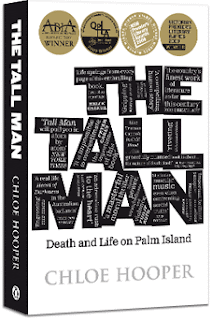An inquest into the death held in 2005 concluded that Senior Sergeant Chris Hurley caused the fatal injuries.Our club members are mostly in their thirties plus two baby boomers to add a bit of living history, sort of fiction fossils. In this case it's non-fiction. The general consensus was that Chloe has given a balanced account despite her closeness to the Doomadgee family and legal team.
He was found not guilty of manslaughter and assault in 2007.
Sergeant Hurley later appealed the original inquest findings and a district court judge ordered the inquest be reopened.
Doomadgee inquest reopens
Andrew Bartlett, former Australian Democrats Senator and current Green’s candidate, has followed the tragic events:
It is well over five years since Mulrunji Doomagee died in police custody on Palm Island, his ribs broken and his liver nearly sliced in two. Previous coronial inquests and trials have wound a tortuous path, with various assertions about the cause of death ranging from the consequences of a “complicated fall” to suggestions Mulrunji’s injuries were inflicted by a more direct methods.He links to Monique Bond’s blog about Palm Island, Monique's notes re Palm Island and other topics
Palm Island Inquest Resumes (again)
She concludes her Background on the Mulrinji inquest 2006:
The Inquest cannot change the root causes of the problems on Palm Island. We can cooperate to improve the relationship between islanders and the police. However, unless the power balance changes so that the Islanders own the agenda and an attitude of mutual respect is insisted on, nothing will improve.The background to this tragic story is very bleak:
- the appalling treatment of indigenous people in Queensland by settlers, government and police;
- the forced relocation of the unwanted and ‘undesirables’ to Palm Island’s virtual prison;
- the continuing consequences of the stolen generations and separated families;
- the culture of apathy and denial within the police, forensic pathologists and the justice system;
- the code of coverup;
- the ‘them and us’ attitudes of some in the Deep North towards their Southern cousins;
- the legacy of Christian missions on indigenous beliefs and values;
- the sorry state of reconciliation in parts of Australia.
Too many aboriginal communities are dominated by whites who hold most of the important jobs and the real power. Even aboriginal community police hold little or no real authority.
Chloe Hooper’s frank verdict on the tall man:
Hurley had become a kind of folk hero. It was as if he’d been not so much acquitted as forgiven And in forgiving him, people forgave themselves.It’s easy to feel that she was trying to nail him for the still unexplained violent death of Cameron Doomadgee. The book club members felt that she was more interested in exposing the way things are, in finding some kind of truth. Unfortunately the latest inquest is unlikely to nail the truth either.

No comments:
Post a Comment